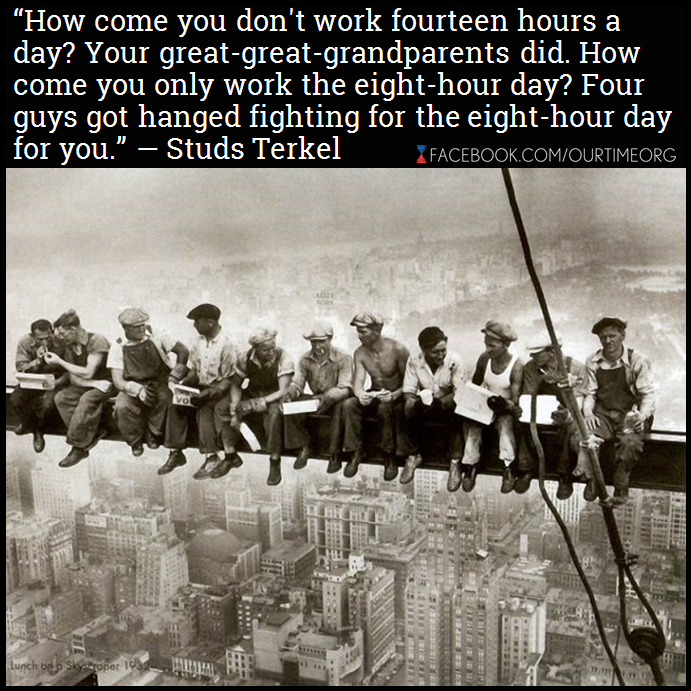This Amazing Clip of Studs Terkel from 1998 is Sadly Still Relevant To Our Nation's Minimum Wage Debate...
By:
If you haven't heard of Studs Terkel, you should. He was a Pulitzer Prize winning American author, historian, and broadcaster famous for detailing the tribulations of America's working men and women, until he passed away in 2008 at aged 96.
In his memoir, Terkel wrote "'ordinary' is a word I loathe. It has a patronizing air. I have come across ordinary people who have done extraordinary things." And his life's mission exemplified this sentiment through his famed book: Working: People Talk About What They Do All Day and How They Feel About What They Do
In the introduction to the book, Terkel writes:
This book, being about work, is, by its very nature, about violence — to the spirit as well as to the body. It is about ulcers as well as accidents, about shouting matches as well as fist fights, about nervous breakdowns as well as kicking the dog around. It is, above all (or beneath all), about daily humiliations. To survive the day is triumph enough for the walking wounded among the great many of us.
He continues:
Work is about a search for daily meaning as well as daily bread, for recognition as well as cash, for astonishment rather than torpor; in short, for a sort of life rather than a Monday through Friday sort of dying.
This clip of Terkel (below) from 1998 is still particularly relevant in light of our nation's current debate over the minimum wage. Rather than quarreling over whose work is worthy of 10 dollars an hour vs. 12 dollars an hour, Terkel passionately states that all workers should merely earn 12 dollars an hour.
"We always compete against the other guy rather than saying 'who are these big guys, this CEO, who is getting 20 million bucks for knocking off 50,000 people?' bemoans Terkel. "It's called downsizing, which of course is a euphemism for mass firings, you see. And so that's what I am talking about... there's an obvious inequity here..."
He's right: CEO to worker pay has ballooned more than 1,000 percent since the 1950's-- Terkel's heyday. Data from the US Census also reveals that income levels of the median middle class household have remained flat since 1989.
Terkel was a big union supporter: “The poor are so busy trying to survive from one day to the next, they haven’t the time or energy to keep score,” he famously once stated. But as wages remain stagnant, union membership has also decreased dramatically in America; in 2013, only 11.3% of wage and salary workers belonged to unions, down from 20.1% in 1983, according to BLS.

